.webp)
How Much Does It Cost to Build an ADU in the Bay Area?
Table of Contents
Building an Accessory Dwelling Unit (ADU) in the Bay Area is a great way to add rental income, increase property value, or provide extra living space for family members. However, the cost of building an ADU in the Bay Area is significantly higher than in other California cities due to high labor costs, strict permitting requirements, and expensive materials.
So, how much does it cost to build an ADU in the Bay Area? This guide will break down the total costs, permit fees, construction expenses, and financing options to help you plan your budget effectively.
To better understand pricing, explore the backyard ADU cost in California and get insights on new ADU laws in California for 2025 by reviewing the latest regulatory updates.
Average Cost of Building an ADU in the Bay Area
The total cost of an ADU in the Bay Area depends on the type of unit, size, and construction method. Below is an estimated price range based on different ADU types:
ADU Type | Estimated Cost in the Bay Area |
Detached ADU | $200,000 – $400,000 |
Attached ADU | $150,000 – $300,000 |
Garage Conversion ADU | $80,000 – $200,000 |
Prefab ADU | $100,000 – $250,000 |
While detached ADUs offer the most space and flexibility, they are also the most expensive due to the need for a new foundation, roofing, and separate utility connections. Garage conversions and prefab ADUs tend to be more cost-effective alternatives.
If you’re considering a faster and more affordable ADU option, prefab ADUs in the Bay Area offer a streamlined construction process, with lower labor costs and quicker installation compared to traditional builds.
For those with an underutilized garage, a garage office conversion can transform existing space into a functional living or workspace while avoiding the high costs of new construction.
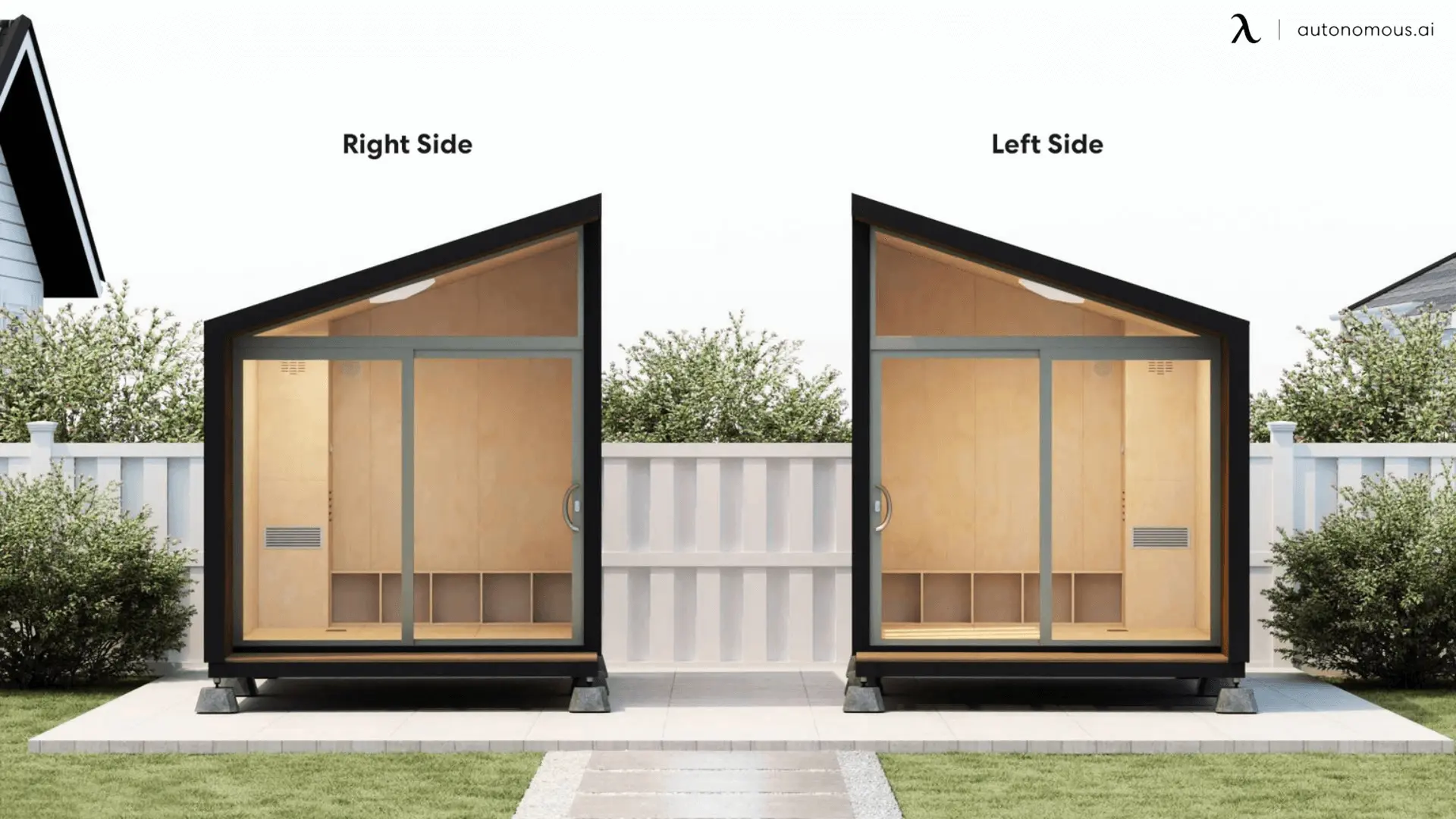
Cost Breakdown of ADU Construction in the Bay Area
1. Permit Fees & Impact Fees
The Bay Area has some of the highest ADU permit fees in California. Homeowners should budget for:
- Building permit fees: $8,000 – $30,000, depending on the city.
- Impact fees: Waived for ADUs under 750 sq. ft. but can add $10,000+ for larger units.
- Zoning and planning reviews, environmental impact studies, and historic property fees may add extra costs.
Each city in the Bay Area has different permitting requirements, so checking with local planning departments is essential. For those dealing with existing structures, learn about unpermitted ADUs in California and the steps needed to bring them up to code. Ensure proper placement by reviewing California ADU setback requirements to avoid zoning conflicts.
2. Construction & Material Costs
- Labor costs in the Bay Area are 25-50% higher than in other California regions.
- Material costs vary based on lumber, concrete, insulation, and finishes.
- Average cost per square foot: $300 – $500 per sq. ft., depending on materials and finishes.
3. Site Preparation & Utility Connection Costs
- Site grading and foundation: $10,000 – $50,000, depending on the lot condition.
- Utility connections (water, sewer, electricity, gas): $10,000 – $30,000, with higher costs for older properties requiring infrastructure upgrades.
Additionally, ensure your ADU complies with electrical requirements by following this guide to ADU electrical regulations in California and explore ADU tax deductions in California to see if you qualify for savings.
4. Interior & Exterior Finishing Costs
- Kitchen and bathroom installation: $15,000 – $50,000.
- HVAC, insulation, and energy-efficient windows for Bay Area weather conditions.
- Exterior work, landscaping, and driveway extensions (if required).
The final cost depends on whether homeowners opt for basic, mid-range, or luxury finishes.
If you’re considering energy-efficient options, check out the benefits of a solar-powered ADU in California to see how sustainable solutions can reduce long-term energy costs.
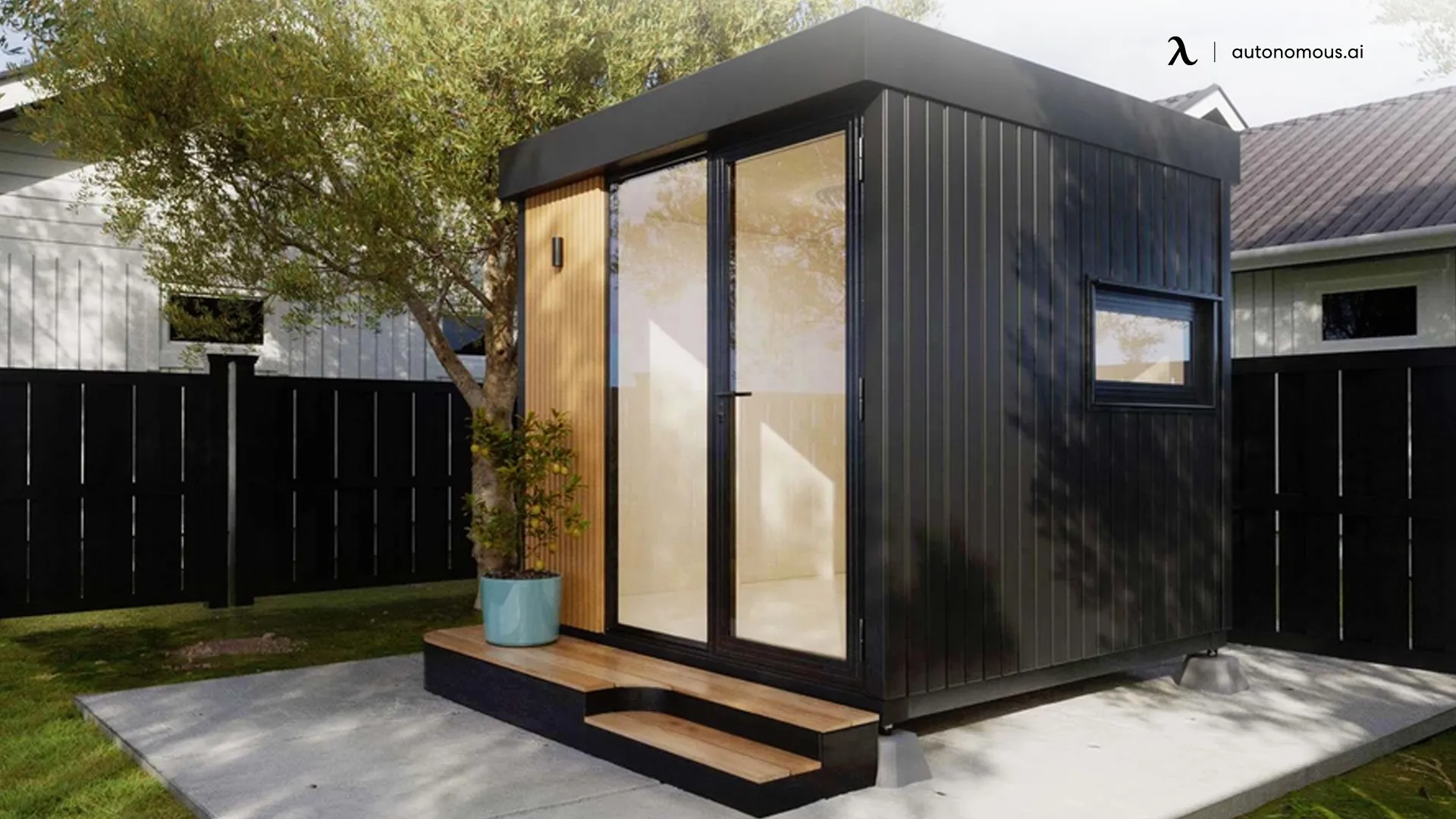
Prefab vs. Stick-Built ADUs: Which is More Cost-Effective?
Prefab ADUs are becoming a popular choice in the Bay Area due to their lower costs and faster installation times.
ADU Type | Cost Range | Pros | Cons |
Prefab ADU | $100,000 – $250,000 | Lower labor costs, faster installation, streamlined permits | Less customization, site prep still needed |
Stick-Built ADU | $200,000 – $400,000 | Fully customizable, long-term durability | Higher labor costs, longer build time, complex permits |
While stick-built ADUs offer complete customization and longevity, they come with higher costs and longer construction timelines. Prefab ADUs are a great alternative for homeowners looking to save money and time.
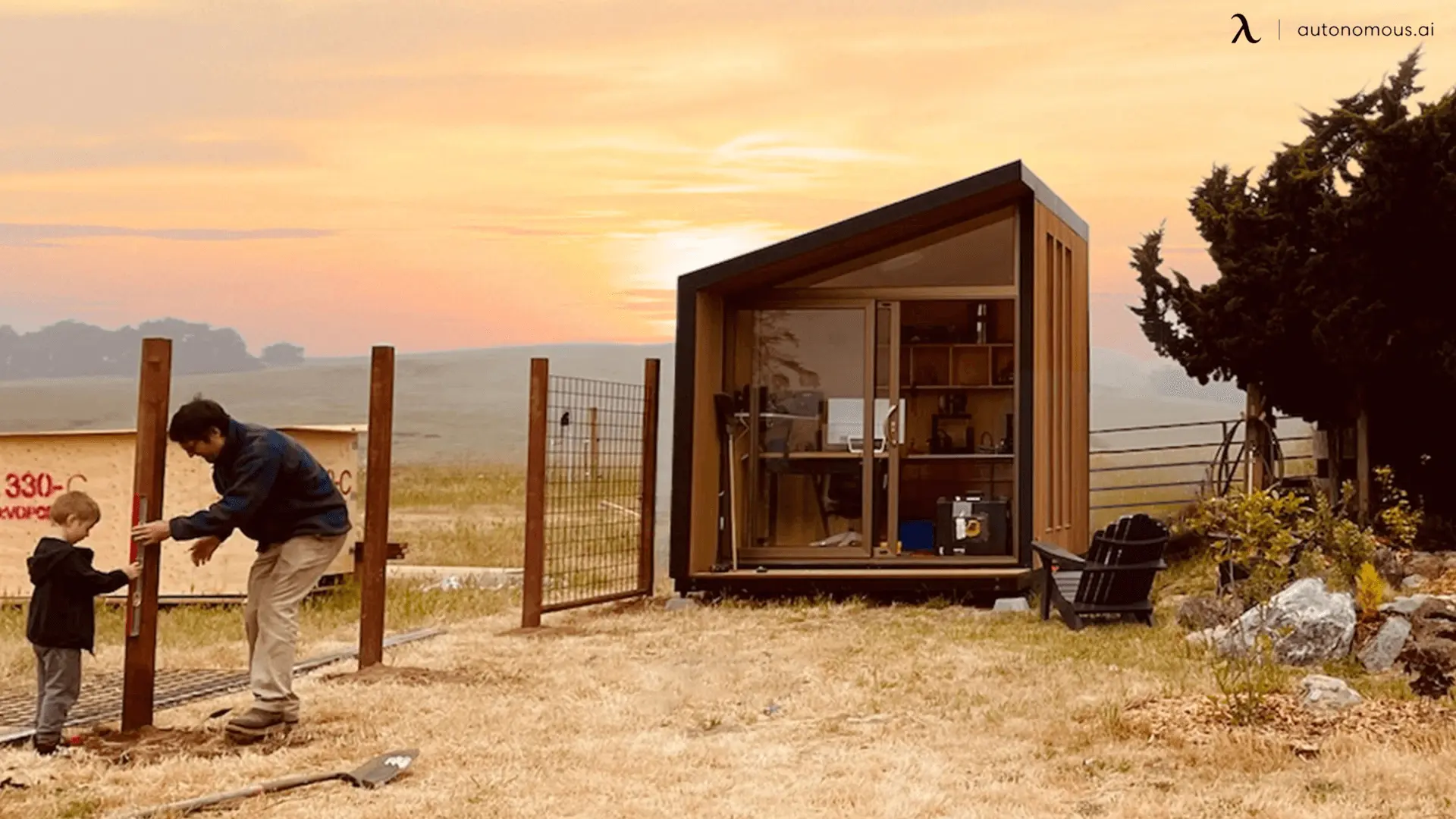
Financing Options for ADUs in the Bay Area
Since ADU construction is a major investment, many homeowners rely on financing options to cover costs:
Home Equity Loans & HELOCs
- Allows homeowners to borrow against their home’s equity.
- Typically low-interest rates compared to personal loans.
ADU Construction Loans
- Short-term loans designed specifically for ADU projects.
- Covers materials, labor, and permit costs.
Cash-Out Refinancing
- Replaces the existing mortgage with a larger loan to fund the ADU.
- Works best for homeowners with low interest rates on their current mortgage.
State and Local ADU Grants & Incentives
- Some Bay Area cities offer low-interest ADU loans or grants to promote affordable housing.
- Check with local housing authorities to see if you qualify for any financial assistance programs.
How Bay Area ADU Costs Compare to Other Cities
Building an ADU in the Bay Area is more expensive than in many other parts of California due to higher labor costs and permit fees. Here’s how it compares:
City | Prefab ADU | Stick-Built ADU | Garage Conversion |
Bay Area | $100K – $250K | $200K – $400K | $80K – $200K |
Los Angeles | $50K – $150K | $150K – $300K | $75K – $140K |
San Diego | $50K – $140K | $140K – $280K | $75K – $140K |
Sacramento | $40K – $120K | $120K – $250K | $60K – $120K |
Homeowners looking for a more budget-friendly ADU option may consider prefab ADUs or garage conversions to cut costs.
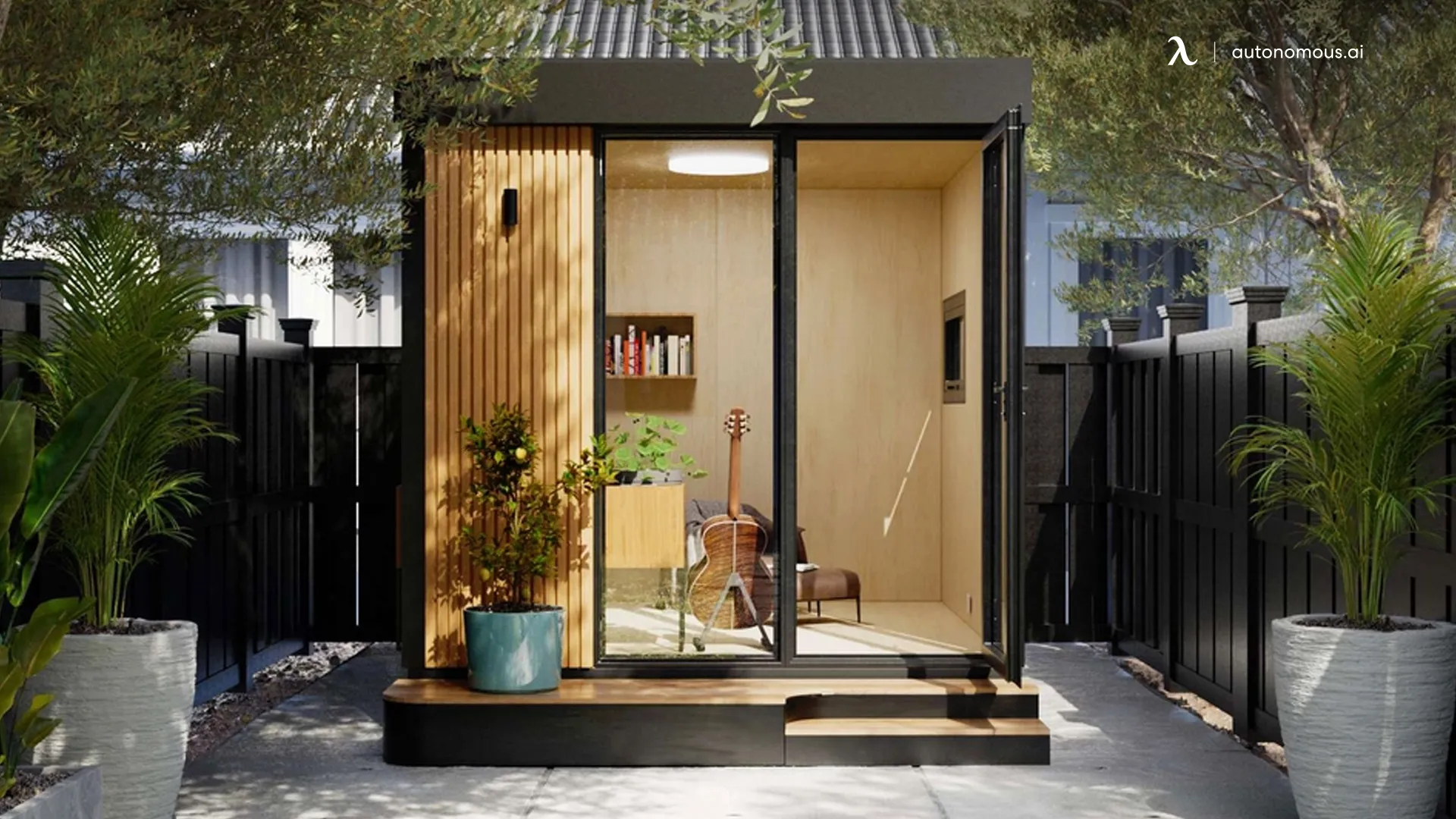
Why Choose Autonomous WorkPod
The WorkPod shines among other brands due to its comprehensive setup package, including a foundation and easy assembly within 2-3 days. The cost of the WorkPod includes crucial elements like windows, a door, and interior features designed for comfort. The table below illustrates a detailed cost comparison between the WorkPod and other brands, emphasizing the benefits and ease of choosing the WorkPod.
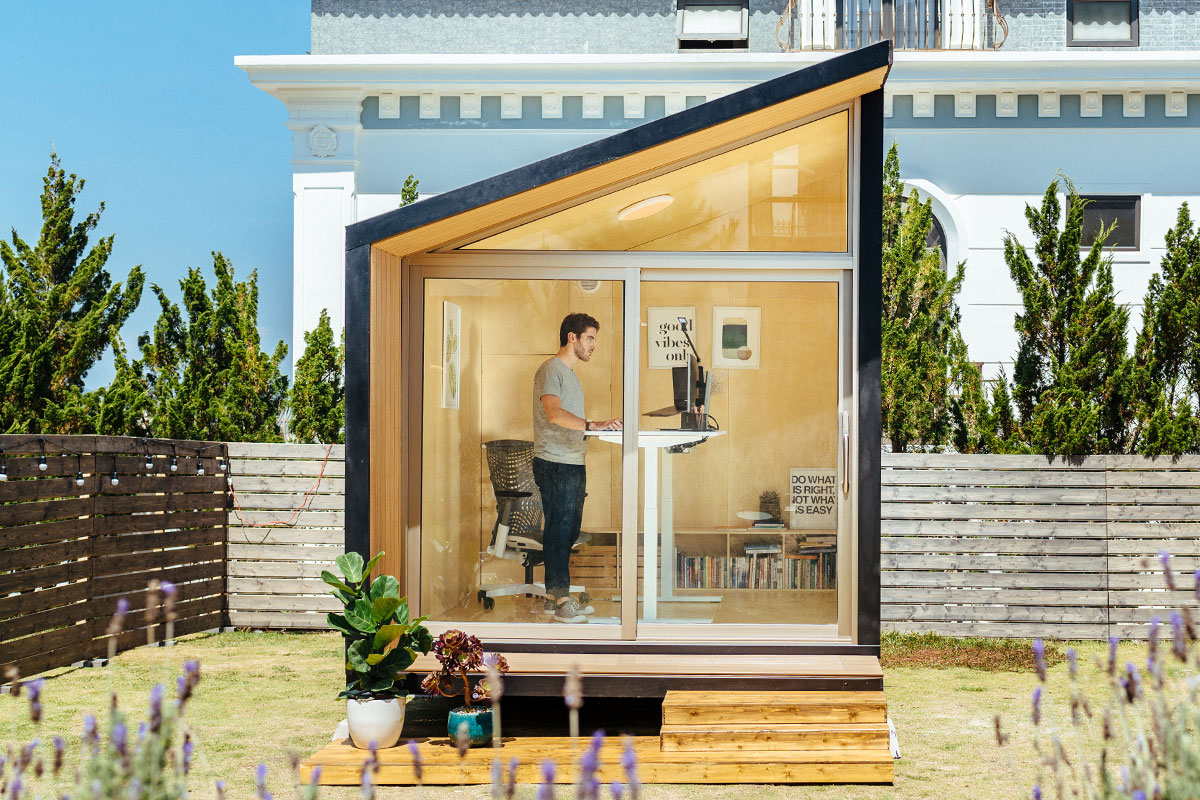
WorkPod
| Overall size | 8.5’W x 12’L x 11’H |
| Floorspace | 102 square feet |
| Ceiling height | 6.8’ to 9.3’ |
| Weight capacity | 2.9 tons |
| Door & Window dimensions, material (include glass) | Main door: 7.5’W x 6.8'H 3 windows: 1.1’W x 7.9’H Window material: Wooden frame, 5/16” tempered glass, composite wood cover Door material: Anodized aluminum frame, 5/16” tempered glass |
| Siding, roof, floor & balcony material | Siding: Plywood 1/2”, wooden frame, honeycomb paper, plywood 3/8”, bitume, housewrap, vinyl siding Roof: Roof shingles Floor: Plywood Balcony: Composite wood |
| Electrical devices | 1 RCB (Residual current breaker) 3 Wall outlet (Universal wall sockets) 1 Ceiling light switch 1 Ceiling light 1 Ventilator switch 1 Ventilator 66ft power cable with 2 connectors |
| Power input | Maximum voltage: 110V AC (US standard) Maximum current: 25A Maximum power dissipation: 2750W |
| Interior furniture | Unfurnished option: 1 Bookshelf, 1 Electrical Cabinet Furnished option: 1 SmartDesk Connect, 1 Autonomous Chair Ultra, 1 Monitor Arm, 1 Cable Tray, 1 Filing Cabinet, 1 Anti-Fatigue Mat, 1 Bookshelf, 1 Electrical Cabinet |
| Compatible with | Portable air conditioner: A/C units with dimensions smaller than 22” L x 20” W x 88” H and a 5.9” vent hole diameter will fit well. Heater: A small personal heater is more than sufficient. |
- Handy homeowners
- Professionals who need a quiet, dedicated space to work from home
- Freelancers who require a focused environment away from household distractions
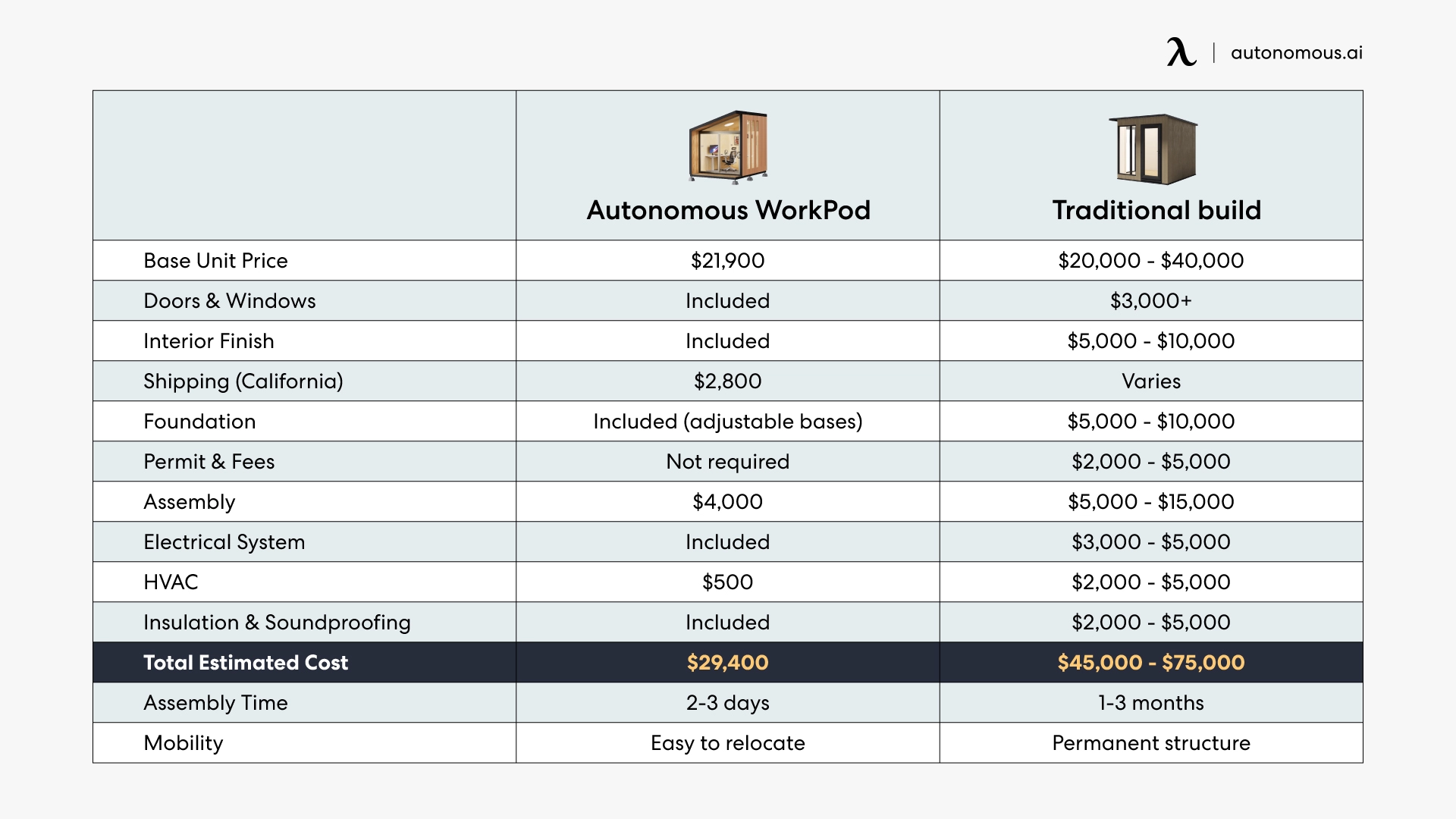
Conclusion
Building an ADU in the Bay Area is a great investment, but higher labor costs, permits, and material expenses make it one of the most expensive places in California to build one.
✔ The cost of an ADU in the Bay Area ranges from $100,000 to $400,000, depending on size and type.
✔ Permit fees and impact fees add significant costs but may be waived for ADUs under 750 sq. ft.
✔ Prefab ADUs offer a more affordable, faster alternative to traditional construction.
✔ Financing options, including HELOCs, construction loans, and ADU grants, can help cover costs.
Before starting your ADU project, research local regulations, financing options, and cost-saving strategies to maximize your investment while staying within budget.
Stay connected with us!
Subscribe to our weekly updates to stay in the loop about our latest innovations and community news!
Interested in a Link Placement?
Spread the word
.svg)
.svg)





/https://storage.googleapis.com/s3-autonomous-upgrade-3/production/ecm/230914/bulk-order-sep-2023-720x1200-CTA-min.jpg)
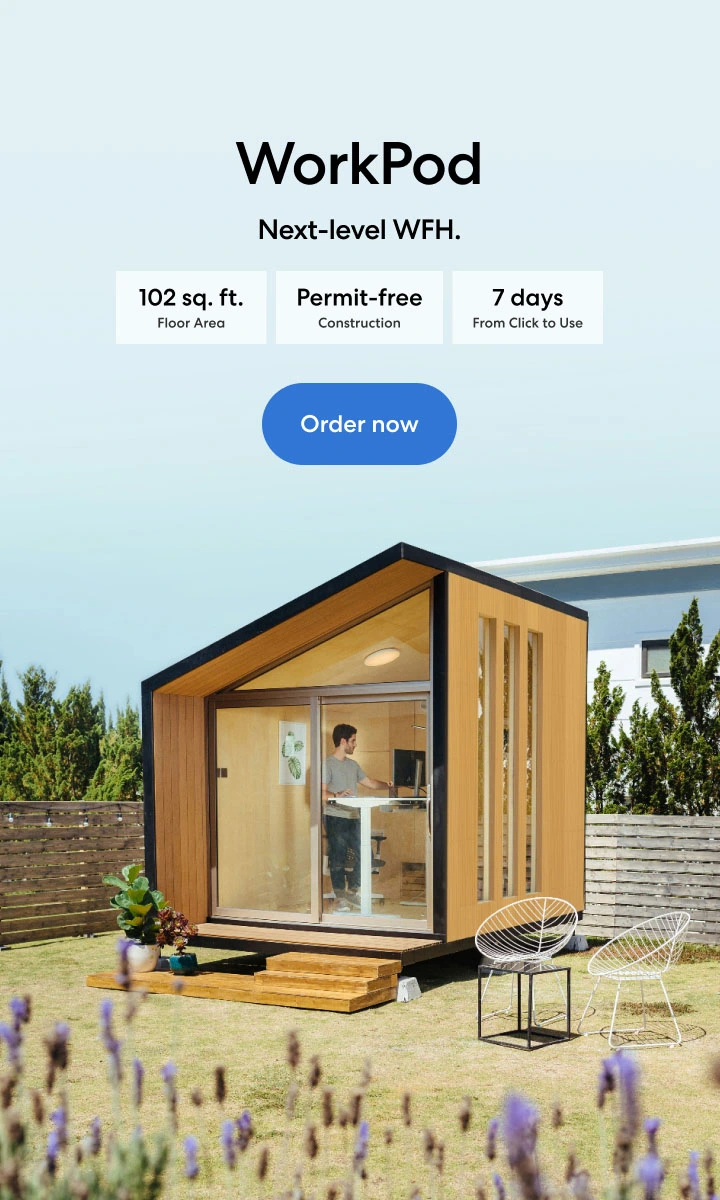
/https://storage.googleapis.com/s3-autonomous-upgrade-3/production/ecm/230824/image_tMoN47-V_1692155358869_raw-93ed49d8-7424-464e-bdfe-20ab3586d993.jpg)